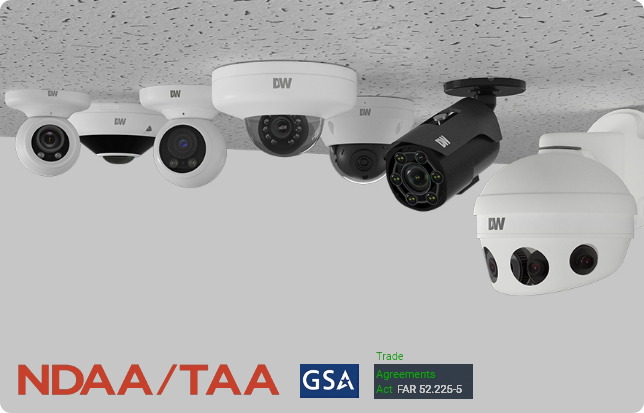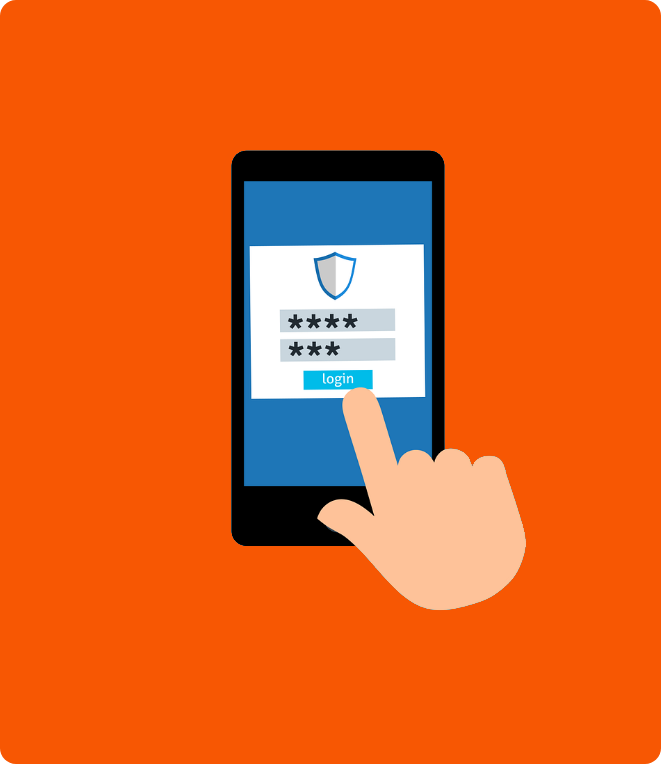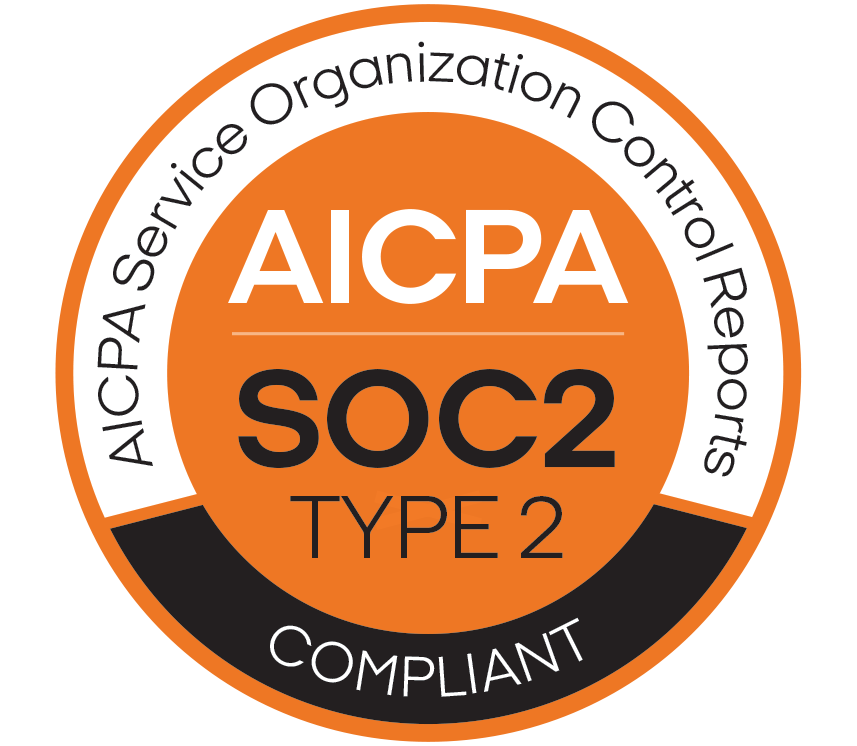Security Compliance
DW is NDAA-compliant across its product lines and has a full suite of trade-compliant cameras, recorders, and network appliances suitable for government, defense, and commercial applications. With manufacturing facilities in Vietnam and South Korea, DW products comply with the Trade Agreement Act (TAA) terms, qualifying DW products for sale under GSA guidelines. DW products no longer use System on a Chip (SoC) technologies from any supplier identified and prohibited under the NDAA. DW remains committed to the highest industry standards and requirements and will work diligently to bring old product lines up to date and compliant with the latest standards.

Password Security
In addition to DW’s traditional access control based on password standards requiring periodical password updates of long and complex letters and character combinations, DW’s products always remain aware of potential risks and hacked access to our products. To curb that threat, DW takes additional protection steps.
Password Requirements
- Password change during the first login helps ensure users do not rely on the default password.
- Minimum password strength during account creation.
- Secure password reset via DW Cloud™.
- Complex multi-level salted/hash password storage forces a more unique and complex password without increasing user requirements
User Enumeration Detection
- DW servers and client applications can spot and prevent brute force or guess-and-confirm attacks. When such action is detected, cameras, servers, and clients use timeouts to stop potential attacks from accessing the System.
Integration with LDAP
- LDAP provides IT administrators with a centralized tool for managing and resetting credentials.


Secure System Communications
DW includes multiple protections for system communications over secure and unsecured (e.g., Internet) networks. These may include CCIP, proxy servers, and encrypted communications between servers, clients, and cameras.
OpenSSL for Network Connections
TLS (Transport Layer Security) protocol provides privacy and data integrity between two communicating applications.
- Server-to-Client (mobile, desktop, web) communications – HTTPS is used by default for all connections.
- Email communications – TLS/SSL is set as the default option for the Email server.
- CCIP™ system encryption enabled client-server encryption between the VMAX IP G4 NVR and IP cameras using TLS and Open SSL TLS v1+
Encrypted Client-Server Communications
- DW Spectrum System administrators can choose to encrypt communications with the “allow only secure connections” option in System Administration settings.
Encrypted Video Traffic
- System administrators can encrypt all video traffic between Clients and Servers with the “encrypt video traffic” option. Custom SSL Certificates
- DW supports the use of Custom SSL certificates. Cloud Connection Proxy
- DW Cloud™ connection proxy and PathFinder securely proxy remote connections to systems using NAT Traversal protocol, removing the need to open or forward ports on secure networks.
System and Organization Controls (SOC) 2 Type 2 Compliance
The SOC2 Type 2 attests to DW's DW Cloud adherence to strict security and privacy requirements over time, and affirms the following:
-
Protecting Privacy
DW is committed to privacy through the implementation of strict policies and practices. This includes clear and transparent approaches to data collection, usage, retention, and disclosure that respect user consent. -
Strict measures to prevent Unauthorized Access
Measures have been put in place by DW to secure DW's platform from any unauthorized entry. There are several robust access controls, identity management systems, and verification mechanisms that guarantee that only the proper individuals can access sensitive information. -
Confidentiality of Customer Data
DW places a high priority on the confidentiality of user data through rigorous data classification and handling practices. This includes employing encryption techniques, secure data storage solutions, and stringent access controls to prevent unauthorized access to sensitive information. -
High Availability of Systems
DW ensures maximum system uptime through well-defined business continuity plans, incident response protocols, and disaster recovery strategies. Our system architecture is built to be fault-tolerant and redundant, supported by regular testing and maintenance to guarantee reliability.

Risk Prevention and QA
DW implements processes to ensure threat assessment and resolution are part of our core culture. These steps include:
Extensive Quality Assurance Testing
- Each DW product undergoes rigorous quality assurance testing before each release to proactively identify and address vulnerabilities.
Regular Updates
- DW provides regular Software and firmware updates and patches to address emerging cyber threats and reported bugs. All DW files and release notes are available to the public.
